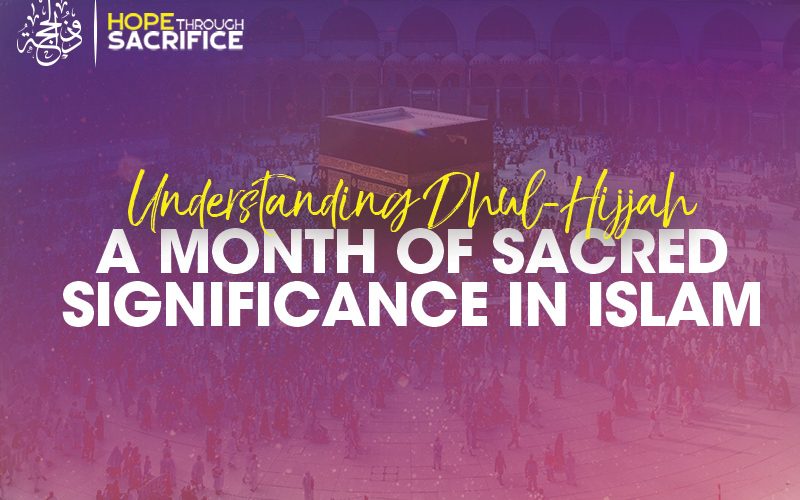Dhul-Hijjah, the twelfth month of the Islamic lunar calendar, holds a place of immense importance in the hearts of Muslims worldwide. It is a time imbued with historical significance, spiritual enrichment, and profound acts of worship. This month encompasses some of the most revered days in Islam, marked by major religious events, including the Hajj pilgrimage and Eid al-Adha.
The History and Significance of Dhul-Hijjah
The name “Dhul-Hijjah” translates to “The Month of Hajj,” directly pointing to its most distinguished event, the annual pilgrimage to Makkah. The history of Dhul-Hijjah is deeply rooted in the Islamic tradition and the story of Prophet Ibrahim (RA), his unwavering faith, and his obedience to Allah’s (SWT) commands.
Hajj is one of the Five Pillars of Islam, mandatory for every Muslim who is physically and financially able to undertake the journey at least once in their lifetime. The pilgrimage traces the steps of Prophet Ibrahim (RA), his wife Hajar (RA), and their son Ismail (RA), commemorating their trials, sacrifices, and faith. Pilgrims perform a series of rites including Tawaf (circumambulation of the Kaabah), Sa’i (walking between the hills of Safa and Marwah), and standing on the plains of Arafat in earnest supplication.
This festival, also known as the “Festival of Sacrifice,” marks the culmination of Hajj. It honours Prophet Ibrahim’s (RA) willingness to sacrifice his son Ismail in obedience to Allah (SWT), who ultimately provided a ram to be sacrificed instead. Muslims worldwide celebrate by performing the Eid prayer, followed by the ritual sacrifice of an animal (usually a sheep, goat, cow, or camel), distributing its meat among family, friends, and those in need.
The Importance of Dhul-Hijjah in Islamic Practice
Dhul-Hijjah is not only significant for those performing Hajj but also holds great spiritual value for all Muslims. The first ten days of this month are considered among the holiest in the Islamic calendar.
These days are highlighted by Prophet Muhammad (peace be upon him) as especially blessed, encouraging increased devotion and righteous deeds. Acts of worship, such as fasting, prayer, charity, and recitation of the Quran, are highly recommended. The Day of Arafat, the ninth day of Dhul-Hijjah, is particularly significant. It is the pinnacle of Hajj, and fasting on this day is believed to expiate the sins of the previous year and the year to come.
Fasting during the first nine days, especially on the Day of Arafat, holds great merit. Increased engagement in prayer and supplication, seeking forgiveness, and making sincere repentance are encouraged. Emphasising the importance of helping others, Dhul-Hijjah is a time for heightened generosity. Muslims are encouraged to give in charity, support the needy, and perform acts of kindness and compassion.
Rewards and Spiritual Benefits
The spiritual rewards during Dhul-Hijjah are immense. Engaging in acts of worship and good deeds during this time is believed to bring numerous benefits and blessings.
Allah’s (SWT) mercy is abundant during this month. Sincere repentance and seeking forgiveness are met with divine grace and pardon. Fasting on the Day of Arafat is especially rewarding, offering expiation of sins for two years. Good deeds performed during the first ten days are multiplied in reward, making this an opportune time for increased devotion and righteousness. The heightened spiritual atmosphere fosters a sense of renewal and closeness to Allah (SWT). It is a period for reflection, self-improvement, and deepening one’s faith and piety.
Conclusion
Dhul-Hijjah stands as a month of profound spiritual significance, offering Muslims an opportunity to draw closer to Allah (SWT) through acts of worship, reflection, and charity. Whether participating in Hajj or observing the blessed days from afar, Muslims are reminded of the virtues of faith, sacrifice, and devotion that underpin their religious practices. Embracing the spirit of Dhul-Hijjah, they seek to attain Allah’s (SWT) blessings, mercy



